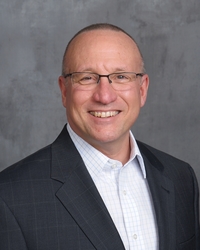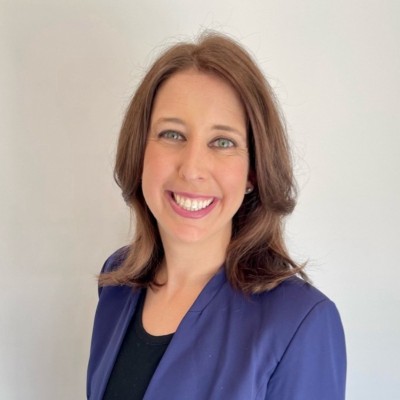Book Club: Larry Levine on Proactively Building Connections by Selling From the Heart
2.4K Views | 15 Min Read
Olivia Fuller: Hi, and welcome to Book Club, a Sales Enablement PRO podcast. I’m Olivia Fuller. Sales enablement is a constantly evolving space, and we’re here to help professionals stay up to date on the latest trends and best practices so they can be more effective in their jobs.
When chasing down sales goals, it can be easy to look outward and focus on the external factors that influence success. But instead, true success really starts from within. In his book, “Selling From the Heart”, Larry Levine talks about how sales professionals can really embrace their authentic selves in the selling process to build the deep relationships that ultimately fuel success. I’m so excited to have Larry here with us today to talk a little bit more about his book.
With that, Larry I’d love if you could just introduce yourself to our audience and tell us a little bit about your background and your book.
Larry Levine: First of all, I’m super excited to hang out with you, Olivia. Thanks for having me on. What a journey it’s been. I’ve taken almost 30 years of office technology sales experience all in the LA marketplace, and I’ve sandwiched that all into what I call my life experiences and bringing “Selling From the Heart” to the forefront. It’s all about bridging sincerity, substance, and deep relationships with your current clients. It’s been a dream to bring “Selling From the Heart” to the forefront, and I’m the co-host of the Selling From the Heart podcast.
OF: Fantastic. Well, I’m so excited to dive into your book and some of the key points that you discuss. One of those is really the importance of developing your personal brand as a sales professional to better connect with customers. I’m curious, how can self-awareness and defining your personal values and that introspection really help salespeople ultimately experience more success?
LL: It’s a great question. I’m going to take you and your listeners back. This probably goes back about 16-17 years. I remember my very first business coach and mentor taught me the whole concept behind self-awareness and self-reflection and really understanding who you are. The reason why I bring this up is I was struggling with to get calls returned. People were hiding behind voicemail and email. My coach taught me the whole idea about learning how to play. I’m going to use his exact words in the online sandbox. He said, “you’ve got to learn and understand how to build a presence online. You have to be congruent with who you are. In other words, how you carry yourself face-to-face. I’m going to coach and replicate this, and you’re going to walk that same line online.”
Not knowing anything other than I’m not afraid to try new things, Olivia, I just dove into this. This is before I knew what LinkedIn was, what social was, and all that. He started helping me build out a website and I had a little small website as a sales professional, but this is where I drove people to learn something about me that created a little bit of differentiation. If we fast forward today, the same applies, but I think the tools are a whole lot different than they are than they were 16-17 years.
OF: At the heart of the book is really the concept of authenticity. But as you just mentioned, the skills that salespeople need to be successful are constantly changing and evolving. I’m curious, what are some of the skills that you think that sales professionals really do need today in order to build those genuine and authentic relationships with customers? How have you seen the skills evolve even in just the last year and a half with all of the acceleration of virtual work and digital customer engagement?
LL: There’s a lot, but I’m going to really home in on three. I think these are the same skills, these are the same ideas, the same thoughts, that apply face-to-face – they just have to be married in the world that we live in today. The first thing is we have to, as far as to build these relationships, be really intentional with how we connect with people. I think connection is part of this. How well are you going to connect with somebody? I always say, are you going to connect with them, or are you going to really connect with them? There’s a huge difference because I’m a big believer that it’s so easy to connect, but it’s ever so difficult to truly connect, especially when you’re building relationships. That would be one of the first. These are all going to be C words, Olivia. I think the first one, in building these relationships, we have to be intentional with how we connect.
The second is how we bring care to the forefront. I smashed this all together and it kind of paints a picture, but in order to show that you care, you need to be willing to give a rip. You really have to care and you need to put it out there. I think as humans we’re really cognizant. We have a sixth sense. It’s just an innate quality that we have in ourselves: we can sense when somebody is really caring or fake caring, just enough to get that sale moving in the right direction. People smell fakeness almost immediately.
Then one of the last things I think we need to bring to the forefront, especially with what we’ve gone through the last year and a half or so, is we’ve got to bring compassion to relationships. That means, “I understand what you’re going through. I feel for you. I can appreciate that.” When you can take the combination of intentional connections, bringing care to the forefront, and just smashing it with compassion, watch what happens to how you start building these deep and meaningful relationships.
The last thing about this is the more that you invest in these relationships, the more you’re going to be able to collect on these relationships. We all know on the financial side of this, if you fail to invest, you’re never going to be able to collect on anything that you invest. The same applies to relationships.
OF: Definitely. I love that you brought up that concept of care, because that really relates to what my next question is for you, which is around the mindset of ownership and accountability. In the book you discuss the difference between average sales reps and high-performing sales professionals. You break down that difference as the top performers, having a mindset of being the CEO of their own book of business, rather than just being an employee of a company. What are some of the best practices for motivating this mindset of accountability and ownership among salespeople?
LL: This might go back to how I was raised. The time that I grew up in, so now I’m going to date myself for everybody, but I grew up pre-internet. A vast majority of the first, I’m going to say seven to eight years of my sales career, the Internet really didn’t even exist. Nothing like it is today. The tools and all that we have available, I didn’t have. The way I was brought up in sales, I didn’t have SDRs and BDRs or ADRs or all the other acronyms that go with this. I was solely responsible for 100% of everything that I did. From prospecting, all the way through the sales journey, all the way through the end even after they became a customer, I had to do all of this myself. I remember a long time ago, an early mentor of mine said, “Larry, treat this as if you own the business. Though you’re in the four walls of this company, treat it as if it’s your own business. Do the things that an owner would do, that a CEO would do.”
It’s not to disrespect the sales profession at all, because I love every aspect of the sales profession. However, I believe there’s a huge difference when it comes to ownership between a sales rep and a sales professional. A sales professional is going to double down on themselves. They’re going to hold themselves to a higher degree of standards and self-accountability than a sales rep. They’re going to look at this and say, “this is my career. I chose to be in sales. I’m going to become the best at it.” If you go in this with the mindset of “I’m the CEO of my own company”, then I’m going to do the things that CEOs would do as opposed to a sales rep who looks at this as “I’m just an employee inside a company, I’m just going to do the things necessary just to get by.”
Again, Olivia, this isn’t to disrespect sales, it’s just to open up their minds and it’s a whole mindset. I can choose to be a professional and do something about it, or I can choose to be a sales rep and sit back and have people do things for me.
OF: I love that advice. I want to pivot just slightly here, because up until now, we’ve really been talking a lot the different ways that selling authentically can help salespeople experience more personal success. But another point that you really talk about in the book and that you’ve talked about in this podcast too with the three Cs, is that the power of selling authentically really lies in helping customers achieve more success. In the book, you talk about this in terms of servant leadership. I’m curious if you can tell us how servant leadership applies to sales and really what does servant-led sales look like in practice?
LL: Oh, this is so good. It’s chapter six in “Selling From the Heart”. I love it. I learned this later on in my career. In order to really understand, Olivia, what it means to serve and how this applies to sales, we have to understand that it all starts with being giving. To me, the best way I can describe this to everybody who’s listening is if you want to understand what it truly means to serve, go out and lend a helping hand out in your community, out in your marketplace, give without asking anything in return, because the whole concept behind serving is to give. It’s to help, it’s to do this without asking for anything in return. It’s a mindset.
I learned this later on, as I started to give back into my community, is they are feel-good moments. To me, serving is proactive and a lot of times in sales, this is a mindset thing, but I’m going to talk about proactive and reactive and how this all ties together. A lot of times we might say something like this: “Olivia, I’m here to provide great service. We’re here to provide great, outstanding customer service.”
There’s nothing wrong with that, but to me, service is a reactionary, defensive move. We react to something that’s happened. However, if you want to be proactive and give, then it’s, “Olivia, I’m here to be a servant. I’m here to serve. What can I do to help? How can I help?” The best way to do this is the only way I know how: go out and lend a helping hand. It ties this in together, and then you’ll get the full idea of what it means to serve, to serve without asking for anything in return. A lot of times this is hard for salespeople and sales leaders to understand, because if we do this, then we expect something in return. A servant-minded or a servant-hearted is going to get something, but it may not come back right away. But when it does come back, it comes back impactful.
OF: That’s fantastic, Larry. As you mentioned, it may not be a natural instinct or inclination for people to lead with authenticity. I’m curious, for our audience who are a lot of sales enablement practitioners that are focused on helping give sales teams the tools and the resources that they need to succeed, how can sales enablement really help sales teams embrace this mindset of authenticity and really help sales professionals gain the necessary skills to sell truly from the heart?
LL: I think sales enablement plays an important role in this because you’re involved before, during, and after the sales process. With the journey with customers, there’s the product, there’s the company, there’s the solution, there’s service-centric skill sets that enablement brings to the forefront. But if I asked a group of sales teams and leaders if relationships matter to them, there’s going to be an overarching 100%, absolutely. But then the question comes into play: how are you building and growing and nurturing these relationships?
You can call it soft skills. We could probably come up with some better words if we’ve really thought about this in a little bit deeper thought, but I think sales enablement can help sales teams bring in the soft skills and how they better connect to the buyers and their clients. What do relationships look like? What does a genuine relationship look like before, during, and after the sale? What does it mean to truly connect? They can help provide them the tools and the skills necessary along with role-playing and then having them go back and ask their clients what the relationships look like. I think sales enablement can become the facilitators towards some of these soft skills to help salespeople learn what it means to sell with dignity and sell with the heart and truly connect to the clients.
OF: Absolutely. Well, Larry, thank you so much for sharing all of this with our audience. I know I certainly learned a ton from you, so thank you again for taking the time to share with our audience.
LL: That was my pleasure. I had a blast.
OF: Fantastic. To our audience, please do go check out Larry’s book, “Selling From the Heart”. Thanks for listening. For more insights, tips, and expertise from sales enablement leaders, visit salesenablement.pro. If there’s something you’d like to share or a topic you’d like to learn more about, please let us know. We’d love to hear from you.














